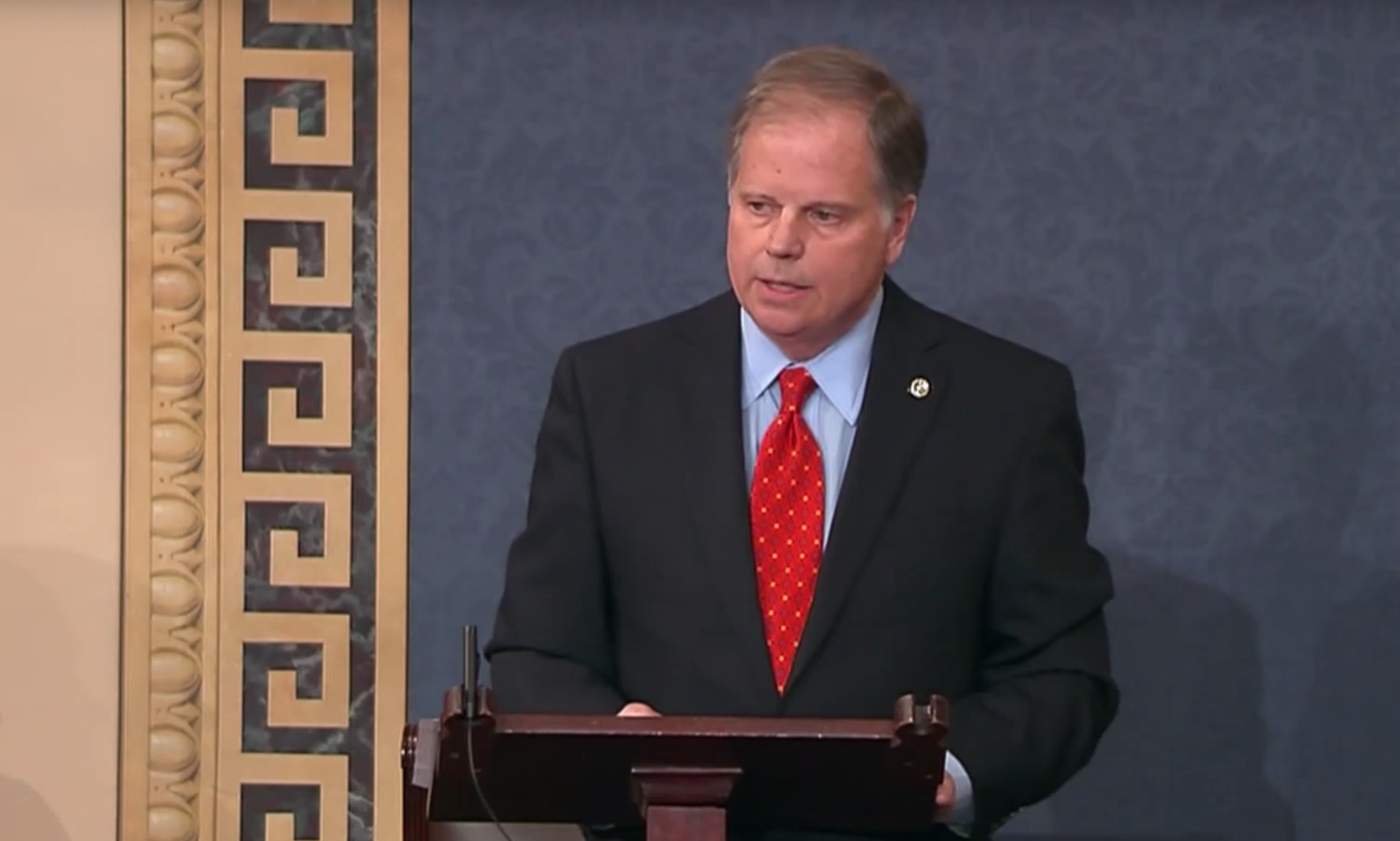Wednesday, U.S. Senators Doug Jones (D-Ala.), Rob Portman (R-Ohio), and Joni Ernst (R-Iowa) introduced the Trade Security Act. The Trade Security Act will require the Department of Defense, not the Department of Commerce, to justify a national security basis for tariffs imposed under Section 232.
The Senators claim that the legislation will reform Section 232 of the Trade Expansion Act of 1962 to better align the statute with its original intent as a powerful trade remedy tool for the president and Congress to respond to genuine threats to national security.
This legislation is designed to address the Trump Administration’s efforts to justify implementing tariffs on certain imports by citing a national security concern. In order to prevent this scenario moving forward, this bill requires the Department of Defense to justify the national security basis for new tariffs under Section 232 and increases congressional oversight of this process.
“We cannot resolve perceived trade imbalances by accusing our allies of being a threat to our national security,” Senator Jones said in a statement. “If a trading partner is suspected of undermining our national security, that claim needs to be thoroughly investigated by those with relevant expertise in the Department of Defense. Unfortunately, the current process led by the Department of Commerce has been misused to target important job-creating industries in Alabama like auto manufacturing. I’m proud to introduce this bipartisan legislation with Senator Portman that will reform the Section 232 process and help to refocus our efforts on punishing bad actors, rather than hurting American manufacturers, workers, and consumers.”
“We must hold countries like China who violate our trade laws accountable, but we must do so in a way that protects American jobs and strengthens the U.S. economy,” said Senator Portman. “I have repeatedly expressed concerns about the misuse of the Section 232 statute to impose tariffs on automobiles and auto parts, and its impact on Ohio jobs and the U.S. economy as a whole. This bipartisan legislation requires the Department of Defense to justify the national security basis for new tariffs under Section 232 and it increases the oversight role of Congress in this process. As a former USTR, I know that misusing our trade tools not only hurts our exports and our manufacturers, but also our consumers, so I urge my colleagues to support this bipartisan legislation.”
“When it comes to national security, we must hold bad actors accountable,” said Senator Ernst. “I support the president’s ability to make trade deals and keep our nation secure, but the Department of Defense must justify the national security basis for new tariffs under Section 232, and we must increase congressional oversight of this process.”
This bill will: Bifurcate the existing Section 232 process into an investigation phase, led by the Department of Defense, and a remedy phase, led by the Department of Commerce. Splitting these responsibilities, while guaranteeing consultation between the two departments at all stages of the process, plays to each department’s strengths to ensure that the statute is used for genuine national security purposes.
The bill also requires the Department of Defense instead of the Department of Commerce to justify the national security basis for new tariffs under Section 232 and make the determination about the national security threat posed by imports of certain products. If a threat is found, the Department of Defense would send its report to the president. In the event that the president desires to take action based on the finding of a national security threat, the president would then direct the Secretary of Commerce, in consultation with the Secretary of Defense and the U.S. Trade Representative, to develop recommendations for how to respond to the threat. After receiving the recommendations of the Secretary of Commerce, the president would decide whether to take action.
The bill would also increase the power of Congress in the Section 232 process by expanding the process whereby Congress can disapprove of a Section 232 action by passing a joint resolution of disapproval. Currently, Section 232 contains a disapproval resolution process limited only to the disapproval of actions on oil imports, which was a reaction to the only two uses of Section 232 over the past 55 years. This bill would expand the use of that disapproval resolution process to all types of products. The reformed disapproval process will only apply to future Section 232 actions. The bill also requires that the administration consult with Congress throughout the Section 232 process.
If somehow this bill passed both Houses of Congress it would go to the President’s desk where it is doubtful that the President would sign a bill that diminishes his authority. If the President vetoes the legislation it would go back to the Congress where bipartisan supermajorities of both Houses of Congress would have to vote to override and all of this has to happen by the end of the year, because there are only 183 days left in the current Congress. If the bill does not pass before the New Year, the legislation would have to be reintroduced in January and go back through the legislative process in the new Congress.
Doug Jones has been critical of President Donald J. Trump’s (R) trade policies and has warned of the potential downside if a trade war results from the President’s increased tariffs.






















































